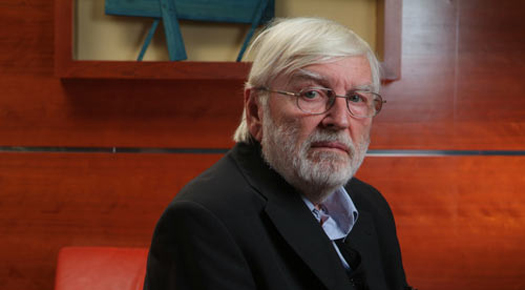
08 May Bora Ćosić

Bora Ćosić was born in Zagreb in 1932. He studied at the Faculty of Philosophy in Belgrade.
During the 50’s of the previous century, he worked as an editor of several papers and journals. He began his writing career in 1962 with a collections of essays Vidljiv i nevidljiv čovek (The Vissible and Invisible Man) and Sodoma i Gomora (Sodom and Gomorrha) in 1963. In 1969, he wrote his best known book, a novel Uloga moje porodice u svetskoj revoluciji (My Family’s Role in the World Revolution), for which he received the NIN award in 1970.
He translated Mayakovsky and Khlebnikov, wrote about modern Yugoslav art. He wrote a play Rado ide Srbin u vojnike (A Serb Gladly Joins the Army), that was staged in Atelje 212 in 1969. He translated and made an adaptation of the musical Hair, that was directed by Mira Trailović and performed in 1969, only a year after its Broadway premier.
Bora Ćosić is one of the followers of the middle European prose tradition of intelectualised essayism. He is one of the last intellectuals who identified himself with Yugoslavia, and its falling apart brought him the period of painful questioning.
In 1991, he left Belgrade to voluntary exile. He lives in Rovinj and in Berlin. That period of his work is marked mostly by essayistic work, that among others, includes Dnevnik apatrida (Apartid’s Dairy) in 1993, in which he expresses his attitutes about contemporary political reality and Carinske deklaracije (Customs’ Declarations) in 2000, in which he discusses the failure of Yugoslav experiment. In 2006, he published a book Put u Aljasku ( The Road to Alaska), in which he noted down his observations from the travels through the after-war countries created from his previous homeland.



Sorry, the comment form is closed at this time.